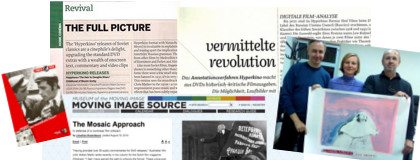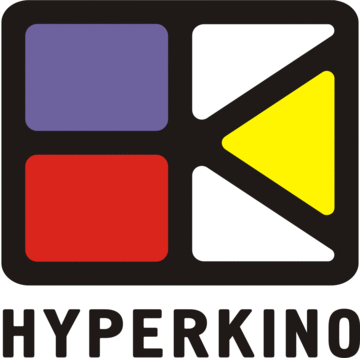
Texts & Archiveselected articles Happiness / Money-Grubbers (Счастье) by Aleksandr MEDVEDKIN (Александр МЕДВЕДКИН)"Специально для тех, у кого еще не завелся iPad, кто еще не может читать электронные книги в формате iBook - выкладываю PDF-вариант комментария к "Счастью" Медведкина. Единственное отличие - здесь мы видим статичные кадры вместо видеофрагментов. Зато можно читать на любом компьютере! На любом планшетнике! И это совершенно бесплатно." (Nikolai Izvolov) СТАГНАЦИЯ ИЛИ ЭКСПАНСИЯ?Николай ИЗВОЛОВ, Заметки о колоризации фильмови о стереокино HYPERKINO 2010Julian Graffy, Studies in Russian and Soviet Cinema, Volume 4, Number 3, 1December 2010, pp. 345-354 Critical Editions of Films on Digital FormatsNatascha Drubek-Meyer, FAMU Praha, Nikolai Izvolov, Research Institute for the Art of Cinema, Moskva |
|

In: Convergence: The International Journal of Research into New Media Technologies, Vol. 13, No. 2 SAGE Publications
In: Convergence: The International Journal of Research into New Media Technologies, Vol. 13, No. 2 SAGE Publications
In: Convergence: The International Journal of Research into New Media Technologies, Vol. 13, No. 2 SAGE Publications
In: Convergence: The International Journal of Research into New Media Technologies, Vol. 13, No. 1 SAGE Publications, 2007
In: Convergence: The International Journal of Research into New Media Technologies, Vol. 13, No. 2 SAGE Publications
In: Convergence: The International Journal of Research into New Media Technologies, Vol. 13, No. 2 SAGE Publications
In: Convergence: The International Journal of Research into New Media Technologies, Vol. 13, No. 2 SAGE Publications
In: Convergence The International Journal of Research into New Media Technologies 2007 13 SAGE Publications
In: Convergence: The International Journal of Research into New Media Technologies, Vol. 13, No. 2 SAGE Publications